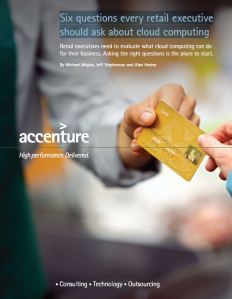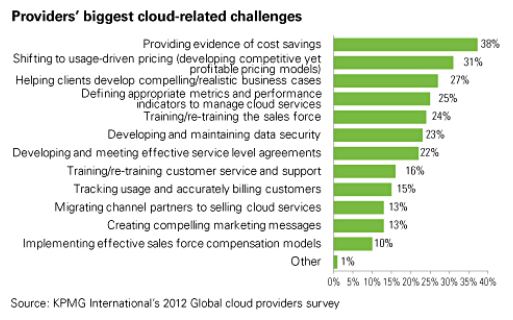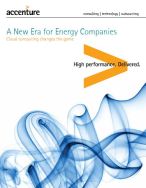Tag Archives: cloud
Six questions every retail executive should ask about cloud computing
A very informative whitepaper from Accenture on cloud computing for retail.
What you will learn:
1. What cloud computing is and how it works.
2. What benefits the cloud can bring to your retail business.
3. How the cloud can help address specific changes faced by your business.
4. Whether you can depend on the cloud to save money.
5. How the cloud will affect the way your business operates in the future.
6. About security and data privacy.
http://www.accenture.com/SiteCollectionDocuments/PDF/Accenture_Cloud_Computing_Retail_POV.pdf
‘The retail industry’s migration to cloud: not a question of ‘if’ but ‘when’.
Cloud Computing a New Era for Energy Companies
We found a great whitepaper from Accenture which discusses why energy companies should consider cloud computing.
In this whitepaper you will learn:
– How the cloud can change the game for energy companies
– About the cloud and production operations
– The cloud and customer engagement
– How BP are leveraging the cloud
– The future of the cloud for energy companies
Download the whitepaper: http://www.accenture.com/SiteCollectionDocuments/PDF/Accenture-New-Era-Energy-Companies-Cloud-Computing-changes-Game.pdf
14 things to consider when choosing a CODO / dealer accounting management suite?
 1. Service station / gas station specific – Traditional accounting systems are not designed to handle many of the industry specific complexities of service station or gas station accounting. The chosen system should have been designed from conception for service station and gas station businesses; this can avoid any unnecessary and expense consultancy fees in adapting the system for a service station/gas station business.
1. Service station / gas station specific – Traditional accounting systems are not designed to handle many of the industry specific complexities of service station or gas station accounting. The chosen system should have been designed from conception for service station and gas station businesses; this can avoid any unnecessary and expense consultancy fees in adapting the system for a service station/gas station business.
2. Cloud based / online – On-premise systems are not suitable for Company Owned Dealer Operated (CODO) networks due to their complex reporting requirements and the geographically dispersed nature of the network. Cloud / online systems allow all users to securely access the single source of information under strict permission rights. Cloud / online systems can be deployed rapidly and can reduce the necessity for major capital expenditure as they are hosted and managed by the software company. Upgrades and updates are automatically applied across the network reducing further hassles and complications for both the dealer and the oil company.
3. Full suite – An online software suite which includes a full general ledger accounting system for the dealer and a management information system for the oil company, will reduce the challenge of collating reports and then re-entering the data into a secondary database which is often costly and can impact the accuracy of data.
4. Track record – A proven track record is essential. The chosen system should have a history is delivering projects on time and on budget.
5. Multilingual and adaptable to the local country – Many oil companies operate in numerous geographical markets, therefore deploy multiple systems to meet the requirements of each country such as local languages and accounting standards. Operating multiple systems often result in additional support and training costs as well as consolidation challenges. All of which can be avoided through the deployment of a single “multilingual retail accounting management suite”.
6. Automated accounting – The chosen system must be able to integrate with other retail IT systems and data sources, this can deliver substantial cost and time savings while increasing the accuracy of the data, as it removes any re-entering errors.
7. Customised reporting – One size does not fit all and out-of-the-box reports will often not provide the necessary insight, it is therefore important that the chosen system has the ability to have customised reports to focus on the key areas of the business.
8. Consistent reporting – It is critical to have consistent reporting across dealers to allow for comparisons and provide insight through benchmarking to unlock value within the network.
9. Easy to use – It is imperative that the accounting system is easy to use and intuitive. A difficult system can prolong the project deployment because of additional training and support requirements all of which can be avoided.
10. Network reporting – Through deploying an online retail accounting management suite across a dealer network such as CounterBooks, the oil company will gain full transparency and a consolidated view of the network’s performance without spending an extensive amount of time and cost collating and analysing data. Network reports which can assist in the management of a dealer network include:-
- Network Profit and Loss report (with budget comparison) which shows the network profit and loss performance by dealer and against budget.
- Purchase Compliance to assess dealers spending with approved suppliers and by category.
- Network Net Worth and Liquidity report to assist in monitoring the financial stability of dealers.
11. Data analysis capabilities – Through analysing data, oil companies can identify trends and benchmark dealers which can assist in gaining a maximum return on their investment. The chosen system should have an easy to use and powerful data analysis tool to assist in “slicing and dicing” data to aid decision making.
12. Drill down functionality – Static reports such as spreadsheets and PDFs do not allow the oil company to look beneath the figures. With drill down functionality on reports, it will allow the oil company to investigate any irregular aspects of the dealer’s financial reports which could be mis-postings or legitimate exceptional items.
13. Period locking – Oil companies can struggle with maintaining the data integrity of the dealer’s accounting records. At the end of the period, the dealer will send their financial reports to the oil company, after doing so, the dealer might make adjustments to “mask” the true financial performance of the business. The “Period Locking” feature is a highly effective control to restrict such circumstances occurring. Once the dealer has finalised their accounts and reviewed by their accountant, the period is locked which restricts the dealer from making any further adjustments.
14. Budget reporting – Budget comparison reports are indispensable to managing the expectations of the dealers, providing a performance management tool while also assisting oil companies with the distribution of financial support to dealers.
If you are interested in understanding how to you can develop your dealer network into a world class retail operation, please visit our website – http://www.CounterBooks.com or speak with us today.
Understanding Cloud Computing with Stephen Fry
Here’s a great video which examines the benefits of cloud computing:
Lessons from a seasoned franchisor – build your franchise on solid technological foundations
 Time and time again, I speak with soon-to-be franchisors in the early stages of setting up and not investing in the right technology. In the mid 2000s, with the help of a great team, we built a franchise network from conception to national brand within 4 years, we introduced many initiatives and the toughest ones, without a doubt, were IT projects.
Time and time again, I speak with soon-to-be franchisors in the early stages of setting up and not investing in the right technology. In the mid 2000s, with the help of a great team, we built a franchise network from conception to national brand within 4 years, we introduced many initiatives and the toughest ones, without a doubt, were IT projects.
It is absolute critical from the outset to have a robust and scalable technology platform prior to recruiting franchisees. Maybe 10 years ago, franchisors could argue that the costs involved in IT projects were prohibitive, however with the availability of cloud deployed technology – there is no excuse. Cloud deployed software is highly scalable due to the pay-as-you-go subscription model (typically per user or per company) and requires minimal capex/upfront investment.
In my humble opinion, executives very often get caught up in the more exciting aspects of franchising, recruitment, marketing and attending franchisees launches. Those of you which have written a full Request for Proposal (RFP), can probably relate, it is a horrendous task.
However it can have profound implications on the franchise system if the appropriate systems and processes are not in place from conception.
Here are some reasons why, now is better than tomorrow (or even three to five years time) to introduce the right systems:-
1. Changing later is a pain
Every time a franchisor recruits a franchisee without the right systems, they are compounding the complications which lay ahead. People rarely like change, and introducing a new IT system even less. Newly launched franchisees should be focused on building their business, not have their time and attention being diverted for the launch of a new IT system – this can have repercussions which can lead to conflict and difficulties early on within the honeymoon period of the franchise relationship.
A new IT project will present the franchisee with additional costs. They might be at the early stages of their growth and might not yet see or understand the logic for the project as they are yet to experience the “challenge” the new system intends to solve – therefore making it more challenging to introduce the system.
Introducing new systems in a wholly owned company can be awkward, when introducing a new system in a franchise network, it presents an additional layer of complexity. You will need to engage with the franchise network, explain the issues, consult with the network as a whole (and/or the franchise council), draft a specification, engage again with the franchise network for user acceptance testing, arrange training, and ensure effective roll out. All of which can be avoided.
So all in, it costs more, consumes time from the franchisee and franchisor and can be a challenge which will involve project management and change management skills.
2. Helps control and manage innovation in the early stages of growth
Many IT projects are reactive, they are intended to solve a problem which has already presented itself and the business has “felt the pain”. For example, if there is an increase in the franchisee failure rate, this is because the franchisor has an inadequate management information system to effectively monitor franchise performance.
With hindsight, had the franchisor introduced a cloud based “Management Information System” at the early stages of growth, they would have potentially avoided the failure of those franchisees, whilst having the opportunity to monitor franchisees through this critical growth stage to refine the model and provide better support.
3. Provides competitive advantage
Having technological competencies can deliver dual competitive advantage. A highly automated accounting back office can deliver competitive advantages through reduced costs and time, therefore allowing the franchisee to focus on delivering a better service and invest in the business. This competitive advantage provides the franchisor with an improved customer experience which can attract talented franchisees.
So prior to developing a franchise channel, a franchisor should give consideration to the three points below:-
- Are all systems suitable for franchisees?
- What other systems will be required to support the franchise management team and the franchisees?
- Can the systems scale in line with your growth objectives?
We would love for you to share some of your experiences, good and bad.
Infographic – Cloud Computing
If it’s snowing outside, the trains aren’t running, the roads are blocked then it can be difficult to get to work. This interesting infographic explains how the cloud can help.

http://submitinfographics.com/all-infographics/infographic-cloud-computing-vs-snow.html
Customer adoption: Barriers to cloud usage
Customers’ single biggest reason for choosing cloud services is to lower costs, and providers indicate that evidence of cost savings is one of their biggest challenges. Other barriers to adoption include the shift to usage-driven pricing, and the importance of producing a compelling business case for the switch to cloud.
When asked why a customer would use a cloud service, almost 6 out of 10 providers say that cost reduction is a goal, followed by speed to adoption and business process transformation.
The need for a strong business case is further emphasized by the fact that 4 out of 10 providers believe that customer expectations of cloud migration cost savings are “realistic.” The number one customer concern is losing control (voiced by half of the respondents), while integration with existing architecture and data security are also major worries.
For providers, the single biggest challenge in managing data security and privacy is compliance with regulation. Consequently many are shoring up their defences by placing tighter restrictions on user access and making greater use of data encryption, as well as providing real-time threat detection techniques.

